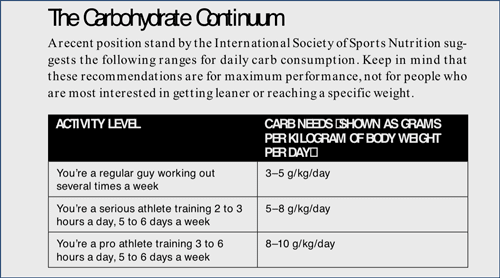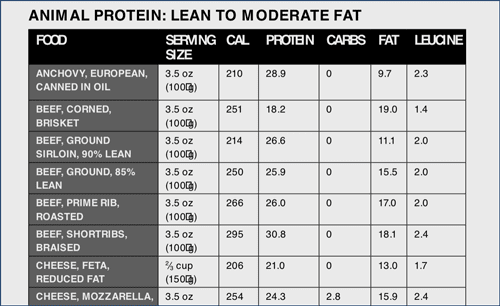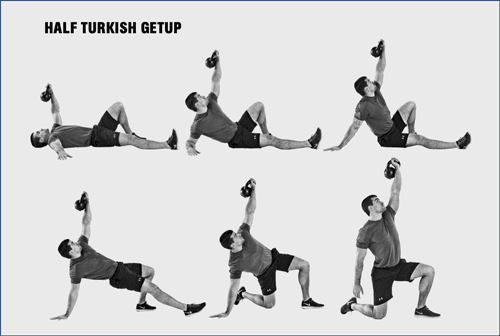The best way to learn premier exercise and nutrition programming is to study the best in action. And the best way to do that is to buy their consumer-faced books.
I say this for two reasons:
1. There aren't many books specifically made for trainers that teach programming. Those that do exist and are thorough enough to be good are usually pretty dull reads. This is one reason why I advise all trainers to purchase books geared towards consumers.
2. You've probably become skilled at training one or two types of clients. Publishing houses like Rodale, which operates Men's Health amongst others, have done decades of research into the imagery, symbolism, and words that make these consumers tick. So you'll learn the programming and nutrition for your clients, which you may already know, but you'll also learn how to communicate it in a way that matters to them. That's the power of buying consumer books.
Today I'm doing a rare book review. I've been looking forward to the release of the Lean Muscle Diet by Alan Aragon and Lou Schuler for some time and, after reading it last weekend, I suggest all trainers buy it for their professional library.
But First: The One Major Problem With Far Too Many Consumer Fitness Books
In order for a book to create enough of a stir and convince enough people to buy it in order to make publishing viable, it's often required that the writer / publisher put a spin or create an angle.
Some popular angles that are currently in vogue right now are things like:
- Paleo
- If it Fits Your Macros (IFYM)
- The Bulletproof Diet
- And a host of others ranging from Atkins to South Beach to Veganism.
All of them have valid points. As discussed in the Lean Muscle Diet by Alan Aragon and Lou Schuler, none of these angles are necessarily wrong.
The problem is that when a consumer-faced book is built around an angle, the author and publishers are forced to protect that angle. The result is cherry-picked research and recommendations that don't seem to come with the best of intentions.
Don't get me wrong, there are loads of exceptional books for personal trainers but seeking them out and validating their claims can be a full-time job.
Why I Really Like the Lean Muscle Diet Book

First, a disclosure. I get nothing for writing this review aside from a few bucks from Amazon if you do buy the book through any links embedded here.
That said, Lou has been a friend and mentor for a few years. So much so that he wrote the forward for my next book, due out in February, but I don't want to get off track. Alan is also a friend and they were nice enough to send me an early copy with no strings attached.
I'll break down what I like about the book into a few points.
1. They break down what everybody is saying and basically show how it's the same thing.
As mentioned above, if a book or brand is built around an angle then it forces the creator to protect that angle. Any real scientist will have a hypothesis based upon best evidence at the time as well. But the difference is this: If proven wrong that scientist will spin on a fucking dime, admit that he or she was wrong, and begin spreading the correct advice.
What Lou Schuler and Alan Aragon break it down to are two things: 1) You must create an imbalance between calories you take in and calories that you expand, and 2) if you want to build more muscle than you have now, you need to get strong.
Obviously they get into much more nuanced detail on both of the above two points in the books.
2. You get both a science and history lesson.
The reference section at the end of the book is lengthy. Every claim is accounted for and you're free to follow up on them.
What I also really enjoyed is the history / anthropological anecdotes scattered throughout. Funny enough, this is actually how Lou and I first bonded. I have a minor in anthropology and he's been an anthropology buff his whole life (If you want an example he wrote the best historical account of how our early ancestors actually ate for Men's Health. It pretty much annihilates the modern definition of paleo).
Have you ever wondered about the history of butter and margarine? Or maybe you'd be interested to know that the guy who invented the Universal machine was a champion weightlifter and bodybuilder in addition to a world-class acrobat.
3. It's got clear and concise pictures, charts, and descriptions.
If there's one thing that a trainer should be able to do it's describe an exercise succinctly and with effective cues. While this isn't unique to the Lean Muscle Diet, I feel that Lou, Alan, and the team at Rodale did a particularly good job at keeping the information organized.
A few examples:
Note: Because I'm traveling I was sent a digital copy of the book to review that's not in its final stage. The result is that some formatting below looks off. This is not the case in the final book.



4. It breaks down how to build a plan.
This part is gold for personal trainers. If you want to learn how to build an effective nutrition plan there's no better source than Alan Aragon.
The book breaks down a calculation that you can do with your clients to figure out all macro nutrient amounts. It then goes into how to measure and what to do when measuring equipment isn't available.
5. If Provides Realistic Expectations.
No more of the "get a six-pack in six weeks" bullshit. Not only are there realistic expectations set "i.e. a 24lbs (10%) weight loss in 6 months to get from 240lbs to 216lbs" but there's a discussion as to why the realistic expectations are realistic and why there are so many variations in individuals.
One thing that I particularly enjoyed learning about was how much variation in nonexercise-activity thermogenesis (NEAT) there is between individuals. A study at the Mayo Clinic is quoted as saying that the difference between two sedentary volunteers giving the same diet burned 692 more calories while overeating while another subject burned 98 fewer calories.
That's crazy. Even if you don't buy the book, look into the concept of NEAT more. It's pretty wild.
6. Lou's got some zingers in his arsenal.
Here's some of my favorite quotes from the book:
It's supposed to be hard. A mature human body is built for homeostasis. It wants to stay the same. - Lou Schuler
"Most vitamin research can be summed up with one word: "meh"." - Lou Schuler
"Dietary perfection is a myth. It doesn't exist. There is no Unicorn Diet for humans. Ten percent of the diet coming from anything you want might sound rebellious until you switch things around and see that 90 percent of the diet is a diligent effort to cover all of the basis" - Alan Aragon
"If your body were the US government, the hormone insulin would be the executive branch. You only think it runs the show because it gets the headlines." - Lou Schuler
"High-fiber foods, like fibrous vegetables, have relatively few calrories, and the calories they have tend to serve a noble purpose. which gives you bigger and more predictable bowel movements. The older you get, the more you appreciate those. (Trust me.)" - Lou Schuler
Hahaha, I couldn't help but add that last one in and embarrass the guy a bit.











